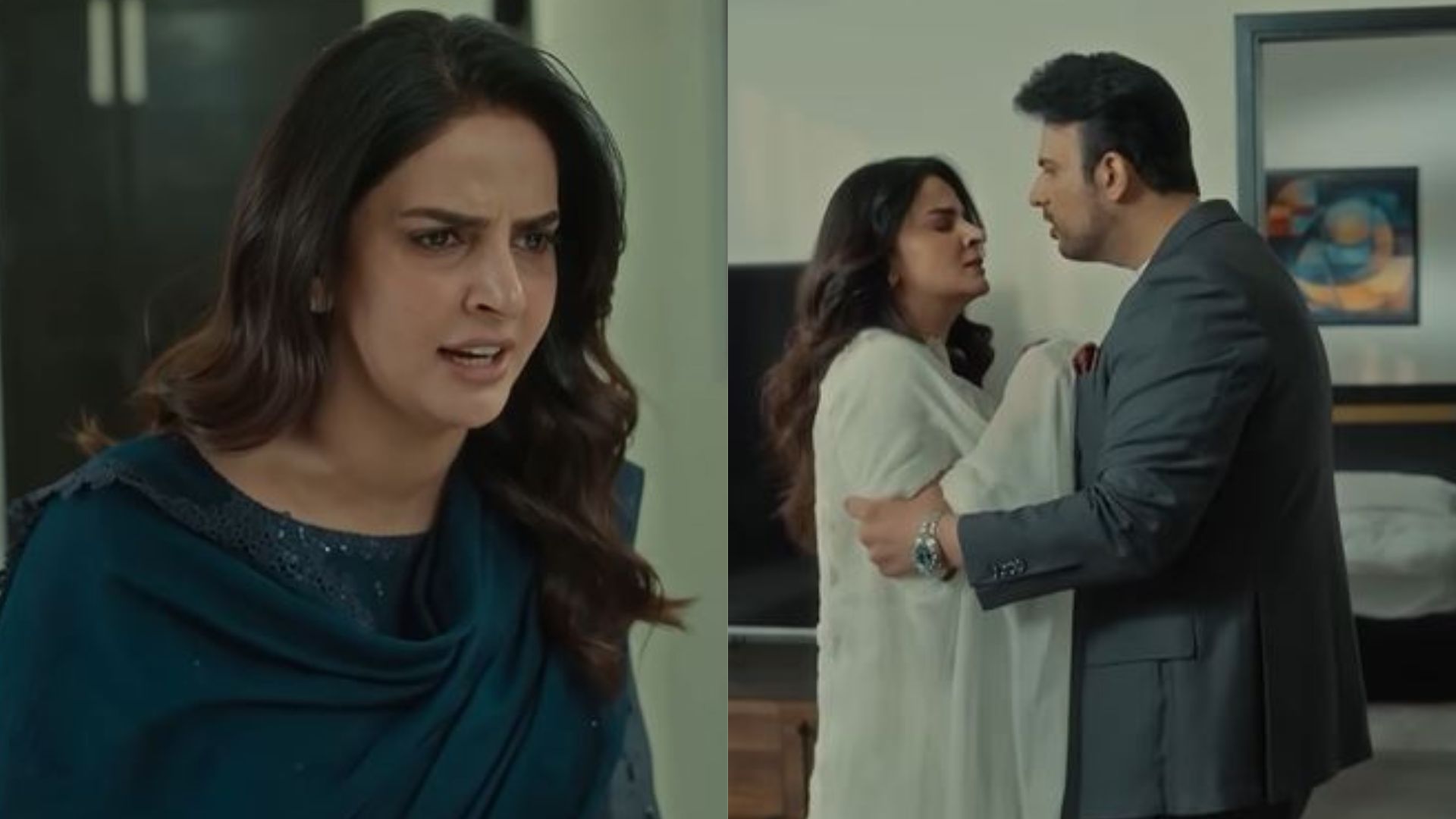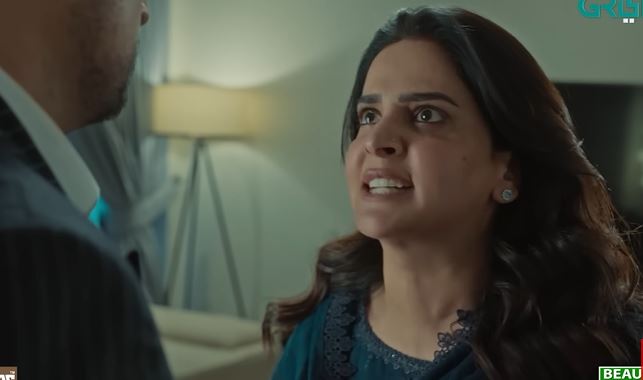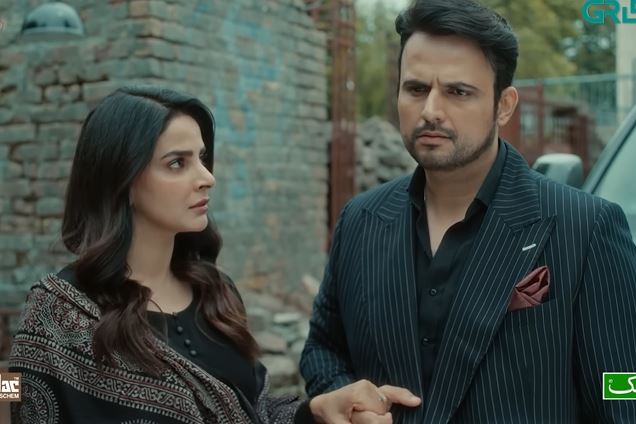
As Pamaal progresses, Malika(played by Saba Qamar) can be seen setting the record straight as she confronts Raza (played by Usman Mukhtar) about his constant aggression and possessiveness. In episode 10, she can be seen hitting him hard with facts by stating that under his mask of care and concern is his insecure and self-absorbed, psychotic behaviour.
Malika also elaborates on how his control over the house, finances, and decision-making has left her isolated. She tells him that this is not normal behaviour and she is living a depressing life. The house, furniture, her attire and even the househelp are supposed to be to his liking.

In another sequence, she again confronts him over his double standards and insecure behaviour. While Malika is not allowed to be friends with a cousin she has spent her childhood with, Raza is all smitten with a former class-fellow he barely knows. When a woman confronts her husband for such behaviour, she is labelled as being insecure; however, when the man does it, it is termed as safety and possessiveness. This leads to Raza physically abusing his pregnant wife, upon which Malika decides to leave.

Despite such strong confrontations, Raza and Malika walk back together as a happy couple by the end of the episode, taking viewers on an emotional rollercoaster. The abusive cycle of control and toxicity is supposed to end, yet Malika is again lured into believing that Raza loves her and cares for her. It shows how unaware our women are towards mental and physical abuse in a marriage.

The mixed reactions from the audience truly mirror how we have normalised domestic abuse, which, if ever talked against, is felt to be abnormal. A viewer commented:

Another wrote:

Such abuse has become a part of almost every household, and we are unable to find the ability to call it abuse. A netizen wrote:

A viewer pushed that Malika has become a voice for many women who go through this in our society, they wrote:

Alongside, some sane voices could be heard as well, who questioned the normalisation of abuse in our society. A viewer commented:

A netizen posted on X:
See #Pamaal to know what an emotionally abusive/ narcissistic person looks like. It is never their fault. You don’t know any better. They make choices for you. They isolate you. If you argue it is your fault. And no amount of pleasing and loving is ever going to make up for it.…
— Ghunoo (@ghunoo) November 5, 2025
Commenting on the audience’s reaction, the writer of the drama, Zanjabeel Asim Shah, said in an interview with Aamna Isani that it shows how our society has not changed over time. Referring to her own married life, she said that 80 per cent of people have not evolved, so they still hold the same opinions as they did in our times. The rest 20 per cent have grown because our surroundings have changed and advanced.
Watch here:









